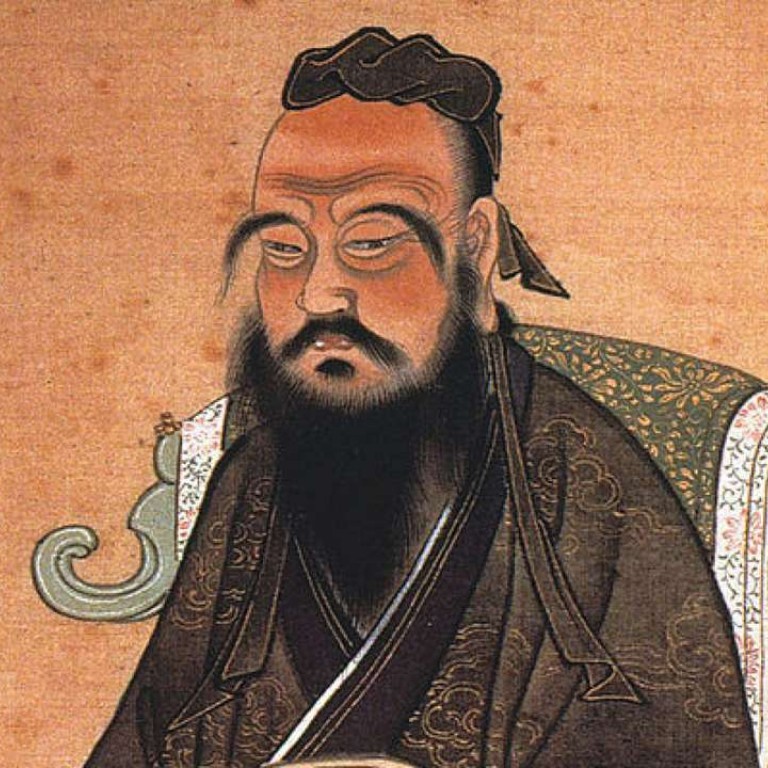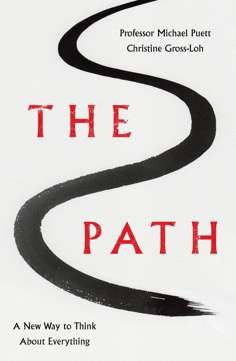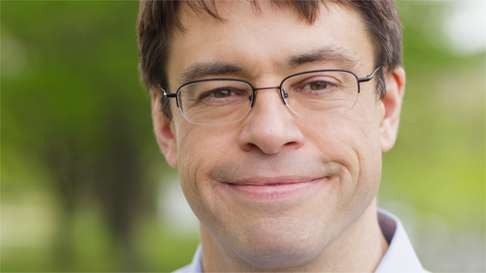
Book review: The Path – big claims about using Eastern wisdom to attain happiness, not delivered
The best that can be said about this thin and rather condescending attempt to offer life lessons based on Chinese philosophy is that it might encourage some modicum of reflection – and might show readers that their problems are not novel

The Path: A New Way to Think About Everything
by Professor Michael Puett and Christine Gross-Loh
Viking Books
3/5 stars
Every now and again, someone writes a book that brings thorny, complicated philosophical questions to the surface, jarring our media-addled minds into thinking a bit deeper than the next 140-character pronouncement or carefully doctored selfie image.
The Path, by Professor Michael Puett and Christine Gross-Loh, emphasises how Eastern ways of thinking challenge Western assumptions in ways that could have an impact on our everyday decisions. It should go next to Zen and the Art of Motorcycle Maintenance or Sophie’s World on your bookshelf.
In it, the authors take a mix of ancient Chinese philosophy, simplify and pare it down, and present it in contemporary, accessible terms that appeal to the masses. Don’t worry, this book contains very little Chinese history or context – just enough to make a reader who can remember a line or two sound clever at a dinner party.
The Path is based on Puett’s lectures as a professor of Chinese history at Harvard University. His undergraduate class “Classical Chinese Ethical and Political Theory” is the third most popular course at the university, which explains the hype surrounding the book’s release. Co-author Gross-Loh is a journalist with a PhD in East Asian history.
Puett begins each semester by telling his class: “If you take the ideas in these texts seriously, they will change your life.”
That is only true if the reader has never taken the time to consider philosophical questions of identity, relationship and personal choice on their own. The book’s main argument is that our world is not as ordered and immune to human influence as we may think, but is rather evolving within the context of human life.
“The way we think we’re living our lives isn’t the way we live them. The way we think we make decisions isn’t how we make them … Our emotions and instincts take over in these situations, and they guide our less spontaneous decisions as well, even when we think we’re being very deliberate and rational: What should I have for dinner? Where should I live? Whom should I marry?”
We live in a society where we are often told to go “find ourselves”, whether that be riding off into the sunset on a motorcycle, dedicating ourselves to something that has until now been a pleasant hobby, or taking up a new interest that is completely outside our comfort zone.

This book challenges the idea that happiness comes from self-discovery, because according to Confucius, Mencius, Zhuangzi and other Chinese thinkers there is no “true self”. Instead, we’re complicated, reactionary beings who create constantly changing factors, and learning to better react to those things is the real path to happiness.
“While we have been told that true freedom comes from discovering who we are at our core, that ‘discovery’ is precisely what has trapped so many of us in the Age of Complacency. We are the ones standing in our own way.”
Instead of escaping our reality, Puett and Gross-Loh write that Chinese philosophy teaches us to learn how to change our reality, since things are not nearly as stable, predestined and predictable as we think they are. If we better train our responses to this fluid environment, we’ll improve our mood and our lives.
The Path puts great emphasis on Confucius’ account of social rituals, contrasting that with our modern society’s focus on self-identity and being true to ourselves. We overestimate our own rationality and understanding of what we want and need.
“[Confucius] begins by observing that if we are spending the vast majority of our waking hours doing these things, then philosophically, that is exactly where we need to begin. We need to ask ourselves why we engage in these actions.”
The book preaches the adopting of rituals that may initially feel fake and unnatural, whether that be smiling at strangers, listening to rather than shouting at an adversary, or incorporating small acts of kindness into our everyday lives. By being untrue to our instincts we can set ourselves free and invite new perspectives, habits and relationships with those closest to us.
Puett and Gross-Loh write that we are much more malleable and fluid than we think we are, and by “honing our instincts, training our emotions, and engaging in a constant process of self-cultivation” we can become better people.
The Taoists also believe identity is fluid and that our decisions are not always rational, but they promote spontaneity rather than strict social rules, and the authors write that by embracing spontaneity in our own lives we can move beyond our rigid self-imposed identities and better appreciate the ever-changing world around us.
“The ancient Chinese understood that we are fragmented and malleable, our actions driven by emotion,” they write.
While an in-depth study of these philosophers would have to also focus on their contradictions, the authors are careful to pick and choose morsels that will fit into their tidy narrative. Although it is based on a university course, this book reads more like a self-help guide than an academic text. Even the large print and length of the book (204 pages) help make this an accessible read. Puett and Gross-Loh write in a tone that assumes a level of naiveté and gullibility that undermines their message somewhat.
The authors’ attempts to teach modern life lessons feels stilted and condescending, a bit like when celebrities introduce new fad diets on talk shows. While this book does offer an extremely thin introduction to ancient Chinese philosophy, it does not show how those ideas mix with more contemporary issues of identity such as race, economic class, career and gender. Their claim that these philosophies will change people’s patterns of thinking “from the ground up in unpredictable, unimaginable ways” is overreaching.
The Path is a nice reminder that we’re not the first to experience the problems we have in our lives, and that there are many moving parts to our society, with each action and reaction creating a ripple effect through the society around us. It’s a good check on the self-centred way of thinking that has become the default for most of us.
The Path will also open readers’ eyes to ideas that, outside of Asia, rarely surface in contemporary dialogue, and any book that makes a reader ask hard questions of themselves is a worthy use of time.

